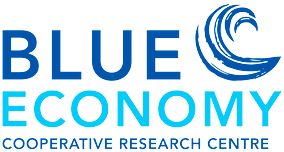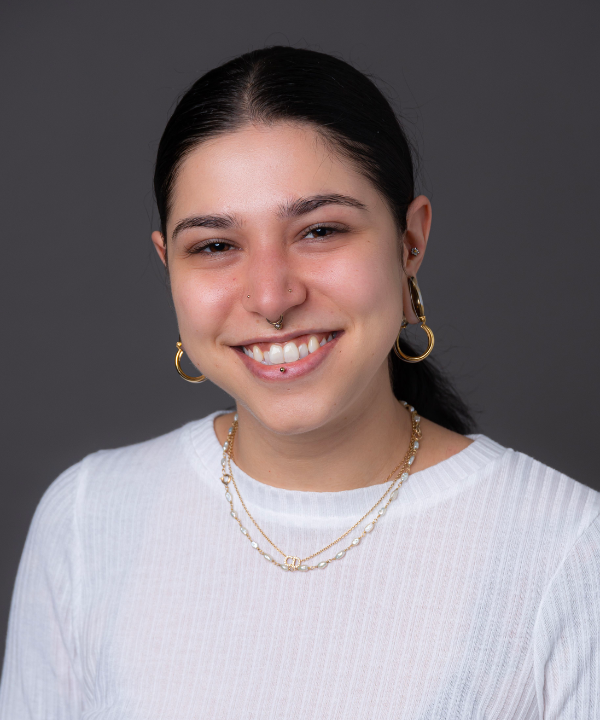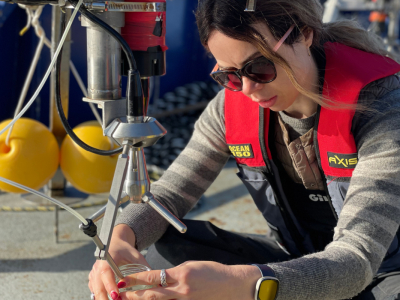Elianna Zoura
Elianna Zoura
Thesis Topic
The effect of organic enrichment on animal–sediment interactions
PhD Start Date
October 2022
PhD Project Objectives
A relocation of coastal, shallow-water fish farms into deep offshore waters benefits the industry in three ways:
- it puts fish into colder water
- it dilutes the rain of organic waste that reaches the seafloor underneath and in the vicinity of the farm, and
- it removes the influence of microbial seafloor processes that degrade the deposited fish waste on the quality of the surface water inside and around the fish pens.
Although these benefits support the sustainability of this aquaculture, they will not automatically generate the social license for large-scale offshore fish farming. To gain this license, the industry must show that they are operating within the assimilative capacity of the waste-receiving environment including the seafloor ecosystem.
The capacity of the seafloor to process or decompose fish waste has traditionally been assessed using proxies that can indicate structural and functional shifts in the ecosystem. Some of these proxies are specific for individual farming sites, others depend on the presence of well-studied faunal species or species assemblages, and most fail to quantify small gradual changes that if continued can eventually lead to regime shifts. Biogeochemical techniques that directly measure the seafloor processes that decompose organic fish waste are available but not used in regulatory frameworks.
The BE CRC project 4.20.004 develops a protocol for such technique, one that allows researchers to quantify the response of the seafloor ecosystem to organic enrichment with rapid, non-invasive measurements of the in-situ sediment–seawater solute exchange. This exchange results from the activity of sedimentary microbes, which is influenced by the bioturbating activity of sediment-inhabiting fauna. Because bioturbation has a major influence on the activity of sedimentary microbes, understanding how organic enrichment alters bioturbation is key to understanding the mechanisms that cause changes in seafloor ecosystem functioning. Hence, the objective of my PhD project is to investigate how organic enrichment modifies animal–sediment interactions using a series of laboratory experiment with selected bioturbators. My research will enhance our ability to measure and predict the environmental performance of offshore fish farms.
Biography
My name is Elianna Zoura; I am a Greek student of science. I received my BSc from Auckland University of Technology, New Zealand, and I completed the first year of my MSc in Marine Science at AUT. My past research shed light on how seafloor perturbations affect the interactions between heart urchins and benthic diatoms, and with this interest, I have now been transferred to AUT’s PhD programme joining the research team of the BE CRC project 4.20.004. I plan to investigate how organic enrichment of the seafloor underneath offshore fish farms affects animal–sediment interactions. Specifically, I will focus on the sediment–seawater exchange of solutes that couple the functioning of the seafloor ecosystem with that of the open water ecosystem. My aim is to enhance our ability to predict the environmental performance of offshore fish farms.
Supervisory Team
Primary Supervisor: Associate Professor Kay Vopel
Auckland University of Technology
Co-Supervisor: Dr. Michelle Simone
Auckland University of Technology





